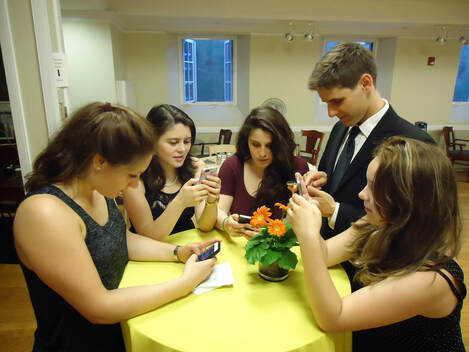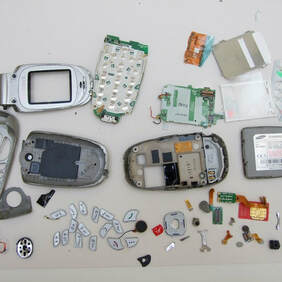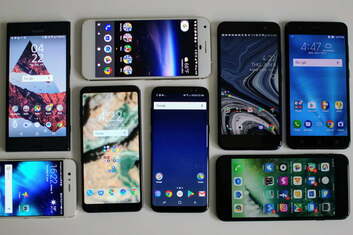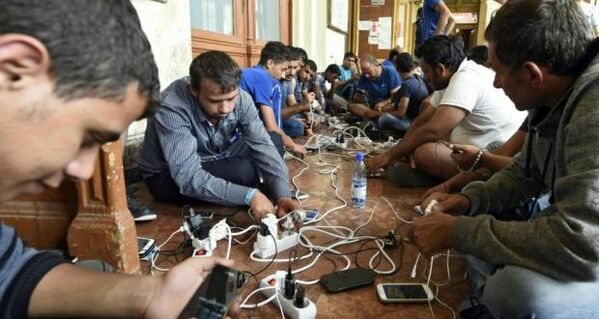© Global Education Derby 2020. All rights reserved. The In Others' Shoes resources are copyright but may be reproduced by any method without fee for teaching purposes.
For copyright in any other circumstances, for re-use in other publications or for translation or adaptation, written permission must be obtained from Global Education Derby: http://www.globaleducationderby.org.uk/contact.html
Global Education Derby is a Registered Charity No. 1049591 and a Company Limited by Guarantee registered in England & Wales No. 2642026.
For copyright in any other circumstances, for re-use in other publications or for translation or adaptation, written permission must be obtained from Global Education Derby: http://www.globaleducationderby.org.uk/contact.html
Global Education Derby is a Registered Charity No. 1049591 and a Company Limited by Guarantee registered in England & Wales No. 2642026.
|
Mobile Phones, Me and Migration
|
| ||||||
Title of Lesson |
Time Required |
Age Range |
Resources required |
Mobile Phones, Me and Migration |
1 - 2 hours |
15 - 18 |
Lesson Objective |
Knowledge and Understanding (Global Theme covered) |
Global Skills covered |
Global Values and Attitudes covered |
To enable students to analyse the impact of mobile phones upon themselves and other perspectives |
Globalisation and interdependence Sustainable Development Human rights |
Self awareness and reflection Communication Ability to manage complexity and uncertainty |
Concern for the environment and commitment to sustainable development |
-
Introduction
-
Main Activity
-
Plenary
-
What were the Outcomes?
<
>
Mobile phones have become ingrained into modern lifestyles and their use permeates lives across the globe.
The idea of this activity is to support young people to reflect upon their own mobile phone use and the wider implications of mobile connectivity for other groups within and across communities.
INTRODUCTION:
The pupils were asked to observe themselves for one day on how they use their mobile phone a couple of days before the lesson. They should write their observations in a diary recording everything. (e.g. minutes of talking, number of sms, taking pictures, using it as a watch, alarm clock and so on).
1. The students work in pairs and exchange their experiences. SWOT headings are written on a flipchart one for each word “Strength/ Weaknesses/ Opportunities/ Threats” and flipcharts are pinned to the walls.
2. The students get together in four groups, every group starts with a different flipchart; they discuss their ideas in seven minutes. When time is up they rotate clockwise to the next chart so every group hits every poster.
3. The ideas on each flipchart are summarised and a class discussion is led based around the strengths, weaknesses, opportunities and threats posed by mobile phone use and ownership.
The idea of this activity is to support young people to reflect upon their own mobile phone use and the wider implications of mobile connectivity for other groups within and across communities.
INTRODUCTION:
The pupils were asked to observe themselves for one day on how they use their mobile phone a couple of days before the lesson. They should write their observations in a diary recording everything. (e.g. minutes of talking, number of sms, taking pictures, using it as a watch, alarm clock and so on).
1. The students work in pairs and exchange their experiences. SWOT headings are written on a flipchart one for each word “Strength/ Weaknesses/ Opportunities/ Threats” and flipcharts are pinned to the walls.
2. The students get together in four groups, every group starts with a different flipchart; they discuss their ideas in seven minutes. When time is up they rotate clockwise to the next chart so every group hits every poster.
3. The ideas on each flipchart are summarised and a class discussion is led based around the strengths, weaknesses, opportunities and threats posed by mobile phone use and ownership.
Build on introductory activity to generate questions:
Share a short film clip/articles about the importance of mobile phones to refugees and migrants.
Give students 20 minutes to research the use of mobile phones by migrants.
How is migrant use of mobile phones being portrayed in a) newspaper stories b) social media memes c) in photography or video?
What are the key issues? What messages are being promoted? Are the messages accurate or biased? Is any information being added or omitted? Who are these images or stories designed to influence?
Students complete SWOT analysis in groups again - adding in further information from the perspective of migrants.
Revisit and summarise key thoughts gathered.
Have the students learnt anything new about mobile phones or migration? Can the students identify any connections between their own mobile phone use and that of migrants? Do they have common motivations? Do they face similar challenges? If so, in what way?
- Is a mobile phone an essential for life in the 21st Century ?
- Is mobile connectivity a luxury?
- What if you lived elsewhere in the world, would your mobile be so important then?
- What if you were a different person, would your mobile phone be so important then?
Share a short film clip/articles about the importance of mobile phones to refugees and migrants.
Give students 20 minutes to research the use of mobile phones by migrants.
How is migrant use of mobile phones being portrayed in a) newspaper stories b) social media memes c) in photography or video?
What are the key issues? What messages are being promoted? Are the messages accurate or biased? Is any information being added or omitted? Who are these images or stories designed to influence?
Students complete SWOT analysis in groups again - adding in further information from the perspective of migrants.
Revisit and summarise key thoughts gathered.
Have the students learnt anything new about mobile phones or migration? Can the students identify any connections between their own mobile phone use and that of migrants? Do they have common motivations? Do they face similar challenges? If so, in what way?
At the end of the lesson, the students are required to think about a switch-off day. The students are asked to write a reflection on “How does a mobile change our lives?”.
This can include reference, not only to their personal experience, but to wider society and to the needs of others such as refugees.
Extension activity: Students can be challenged to explore the origins of mobile phones.
Which raw materials are needed to make them? Where are these materials mined? Who is involved in the mobile phone supply chain? What are their working conditions like? What are the implications for our consumption and use of technology such as mobile phones?
This can include reference, not only to their personal experience, but to wider society and to the needs of others such as refugees.
Extension activity: Students can be challenged to explore the origins of mobile phones.
Which raw materials are needed to make them? Where are these materials mined? Who is involved in the mobile phone supply chain? What are their working conditions like? What are the implications for our consumption and use of technology such as mobile phones?
The students became more aware of their own mobile phone use.
They gained an increased understanding of the impact of mobile phone technology on the lives of other consumers, such as migrants.
They gained an understanding of mobile phone production, it's reliance on a global supply chain and the implications for the life and work of those in other countries.
They gained an increased understanding of the impact of mobile phone technology on the lives of other consumers, such as migrants.
They gained an understanding of mobile phone production, it's reliance on a global supply chain and the implications for the life and work of those in other countries.
Lesson submitted by Sibel Altunyurek, Turkey (adapted from an activity published in The Global Teacher, by Leeds DEC - 2013)








